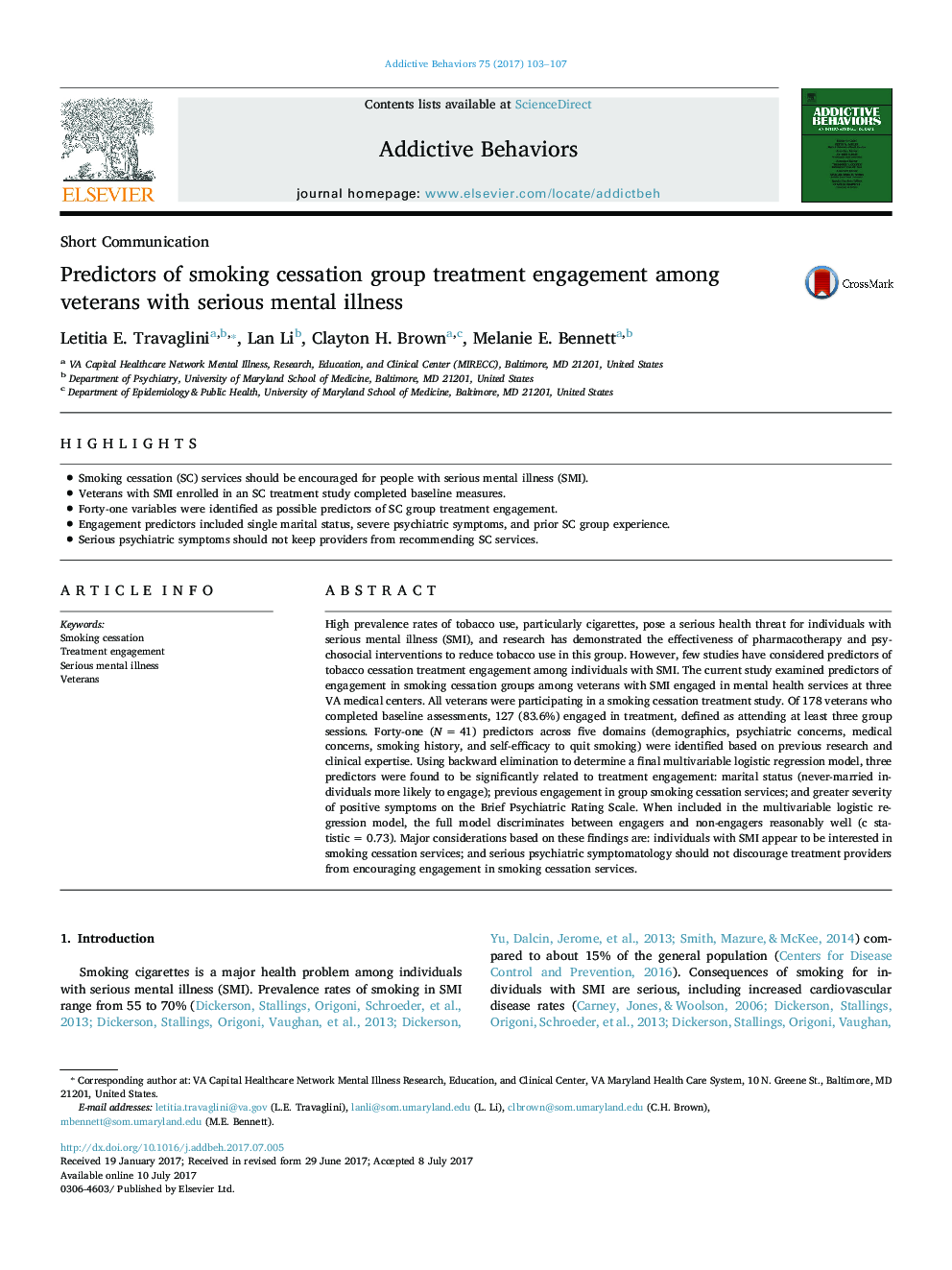| کد مقاله | کد نشریه | سال انتشار | مقاله انگلیسی | نسخه تمام متن |
|---|---|---|---|---|
| 5037685 | 1472496 | 2017 | 5 صفحه PDF | دانلود رایگان |
- Smoking cessation (SC) services should be encouraged for people with serious mental illness (SMI).
- Veterans with SMI enrolled in an SC treatment study completed baseline measures.
- Forty-one variables were identified as possible predictors of SC group treatment engagement.
- Engagement predictors included single marital status, severe psychiatric symptoms, and prior SC group experience.
- Serious psychiatric symptoms should not keep providers from recommending SC services.
High prevalence rates of tobacco use, particularly cigarettes, pose a serious health threat for individuals with serious mental illness (SMI), and research has demonstrated the effectiveness of pharmacotherapy and psychosocial interventions to reduce tobacco use in this group. However, few studies have considered predictors of tobacco cessation treatment engagement among individuals with SMI. The current study examined predictors of engagement in smoking cessation groups among veterans with SMI engaged in mental health services at three VA medical centers. All veterans were participating in a smoking cessation treatment study. Of 178 veterans who completed baseline assessments, 127 (83.6%) engaged in treatment, defined as attending at least three group sessions. Forty-one (N = 41) predictors across five domains (demographics, psychiatric concerns, medical concerns, smoking history, and self-efficacy to quit smoking) were identified based on previous research and clinical expertise. Using backward elimination to determine a final multivariable logistic regression model, three predictors were found to be significantly related to treatment engagement: marital status (never-married individuals more likely to engage); previous engagement in group smoking cessation services; and greater severity of positive symptoms on the Brief Psychiatric Rating Scale. When included in the multivariable logistic regression model, the full model discriminates between engagers and non-engagers reasonably well (c statistic = 0.73). Major considerations based on these findings are: individuals with SMI appear to be interested in smoking cessation services; and serious psychiatric symptomatology should not discourage treatment providers from encouraging engagement in smoking cessation services.
Journal: Addictive Behaviors - Volume 75, December 2017, Pages 103-107
